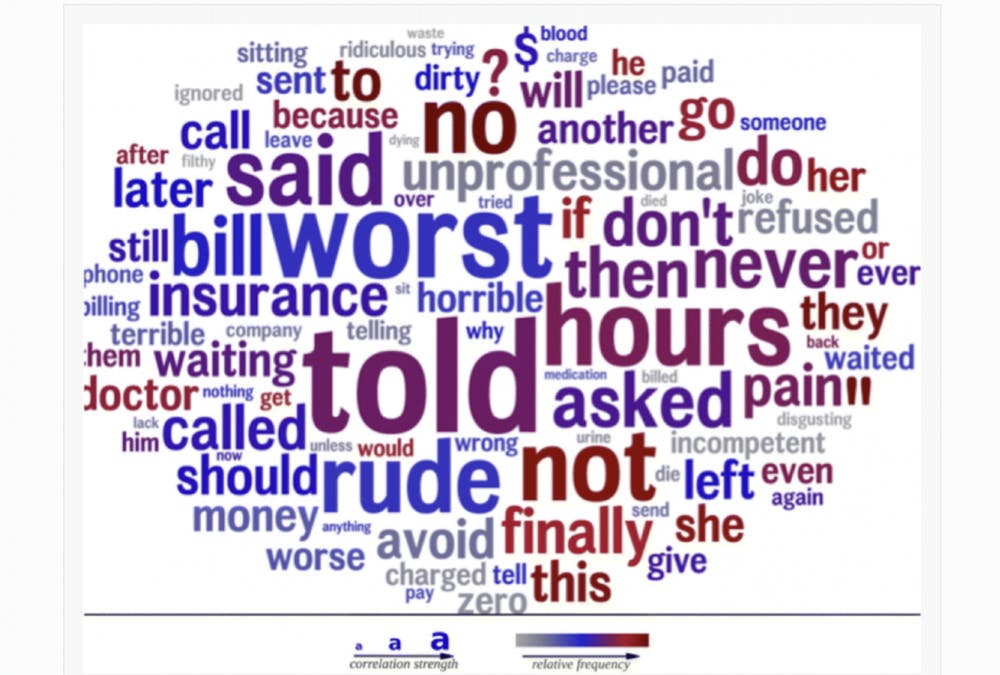
Reviewers frequently cited lack of communication over procedure costs, frustration from not being listened to, and helplessness when doctors tell patients there is nothing they can do to help. (File Photo)
Poor communication is one of the most common causes of negative hospital experiences, Penn Medicine researchers found in a recent study.
The study, published in the Journal of General Internal Medicine, was based on more than 50,000 Yelp reviews on 1,566 hospitals across the country, which averaged 2.84 stars. Among other findings, researchers found that the word “told” was most associated with negative posts, appearing in 20 percent of one-star reviews.
“Oftentimes, words such as ‘told’ hint at a breakdown in communication,” Penn Med emergency medicine physician Anish Agarwal told Penn Medicine News. “I suspect that patients are not feeling listened to or heard and this could be driving poor experiences and low reviews.”
The researchers utilized a machine learning tool to correlate specific words that appeared most often in reviews to various star levels on Yelp.
Researchers identified communication concerns by specifically analyzing one-star Yelp reviews. They found that in these reviews patients noted issues with little information about procedure costs as well as care providers not actively listening to them.
Agarwal and his co-author, Emergency Medicine professor Raina Merchant, also found that the words “friendly” and “great” were most correlated with five-star reviews.

The figure from the Journal of General Internal Medicine's study shows how "told" is the word most correlated to negative online hospital reviews.
Hospital communication is also a challenge among hospital staff themselves. This issue prompted 2014 Wharton MBA graduates Divya Dhar and Lane Rettig to design a mobile messaging app, created in 2013, that allows doctors with common patients to communicate and coordinate patient care.
As online reviews and social media continue to grow, Agarwal hopes to identify what more can be improved in healthcare, he told Penn Medicine News.
"Patients value communication highly in their overall experience when they’re in the hospital,” Agarwal added. “As health care transitions to being more patient-centered, I think hospitals and providers need to continue to work on how we improve communication, how we listen, and how we approach all patient interactions.”
The Daily Pennsylvanian is an independent, student-run newspaper. Please consider making a donation to support the coverage that shapes the University. Your generosity ensures a future of strong journalism at Penn.
Donate






